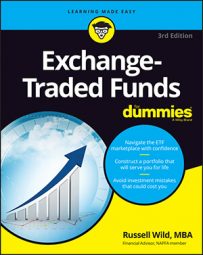Although more than 30 REIT ETFs are currently available to U.S. investors, a handful really stand out for their low costs and reasonable indexes. In fact, making the selection shouldn’t be all that hard.
U.S. domestic REIT ETFs
These two funds are strikingly similar, and either one fits the bill nicely when it comes to investing in the U.S. REIT market.
Vanguard REIT Index ETF (VNQ)
Indexed to: The MSCI U.S. REIT index, which tracks roughly two-thirds of the U.S. REIT market
Expense ratio: 0.12 percent
Number of holdings: 108
Top five holdings: Simon Property Group, Equity Residential, Public Storage, Vornado Realty Trust, Boston Properties
Once again, Vanguard brings to market the most economical investment vehicle. You can’t find a better way to invest in the U.S. REIT market than through VNQ. This is a broadly based ETF with an ultra-low expense ratio. Like all Vanguard ETFs, this fund trades free of commissions if held in a Vanguard account.
Focus Morningstar Real Estate ETF (FRL)
Indexed to: The Morningstar Real Estate Index, which tracks the market for publicly traded U.S. REITs
Expense ratio: 0.12
Number of holdings: 85
Top five holdings: Simon Property Group, Equity Residential, Vornado Realty Trust, Public Storage, Boston Properties
Focus Morningstar ETFs from FocusShares are the creation of Morningstar and Scottrade. All FocusShares ETFs trade free of commission at Scottrade.
Given the similarity in construction to Vanguard’s VNQ and the identical expense ratio, this fund could be a substitute if you want to use FocusShares instead of Vanguard (such as if you have an account at Scottrade). Vanguard VNQ and FocusShares FRL are both about half the price of any other REIT ETF on the market.
Global REIT funds
If you split your REIT allocation between U.S. and international, the next two ETFs come in handy. The first fund, VNQI, invests only in markets outside the United States and pairs quite nicely with VNQ. The second fund, RWO, is divided between U.S. and non-U.S. REITs, so it provides one-stop shopping for REIT investments (although at a higher cost than you’d pay for the Vanguard options).
Vanguard Global ex-U.S. Real Estate ETF (VNQI)
Indexed to: The S&P Global ex-U.S. Property Index, which tracks the performance of REITs in both developed and emerging markets outside of the United States
Expense ratio: 0.35 percent
Number of holdings: 424
Top five holdings: Sun Hung Kai Properties, Mitsubishi Estate Company, Cheung Kong Holdings, Unibail-Rodamco, Westfield Group
Top five countries: Hong Kong, Japan, Australia, United Kingdom, Singapore
There is no less expensive way to tap into this asset class. This fund trades free if held at Vanguard, and it makes a very nice companion fund to VNQ. Do take note that foreign REITs, like all foreign stocks, are going to be subject to currency flux as well as market volatility. In other words, expect a bit more of a rollercoaster ride with this and all foreign ETFs than you would expect of domestic ETFs.
SPDR Dow Jones Global Real Estate (RWO)
Indexed to: The Dow Jones Global Real Estate Securities Index, an index based on the publicly traded real estate market in both developed and emerging-market nations
Expense ratio: 0.50 percent
Number of holdings: 216
Top five holdings: Simon Property Group, Westfield Group, Unibail-Rodamco, Brookfield Asset Management, Equity Residential
Top five countries: United States (50 percent of the fund), Australia, Japan, United Kingdom, Hong Kong
If you have a smaller portfolio, or if you lust for simplicity, go with this perfectly fine ETF. But for most folks, you’d be better off to combine the Vanguard domestic REIT ETF (VNQ) with the international REIT fund (VNQI). You’ll wind up with pretty much the same mix of REITs, but you’ll be spending less than half as much on management expenses.

